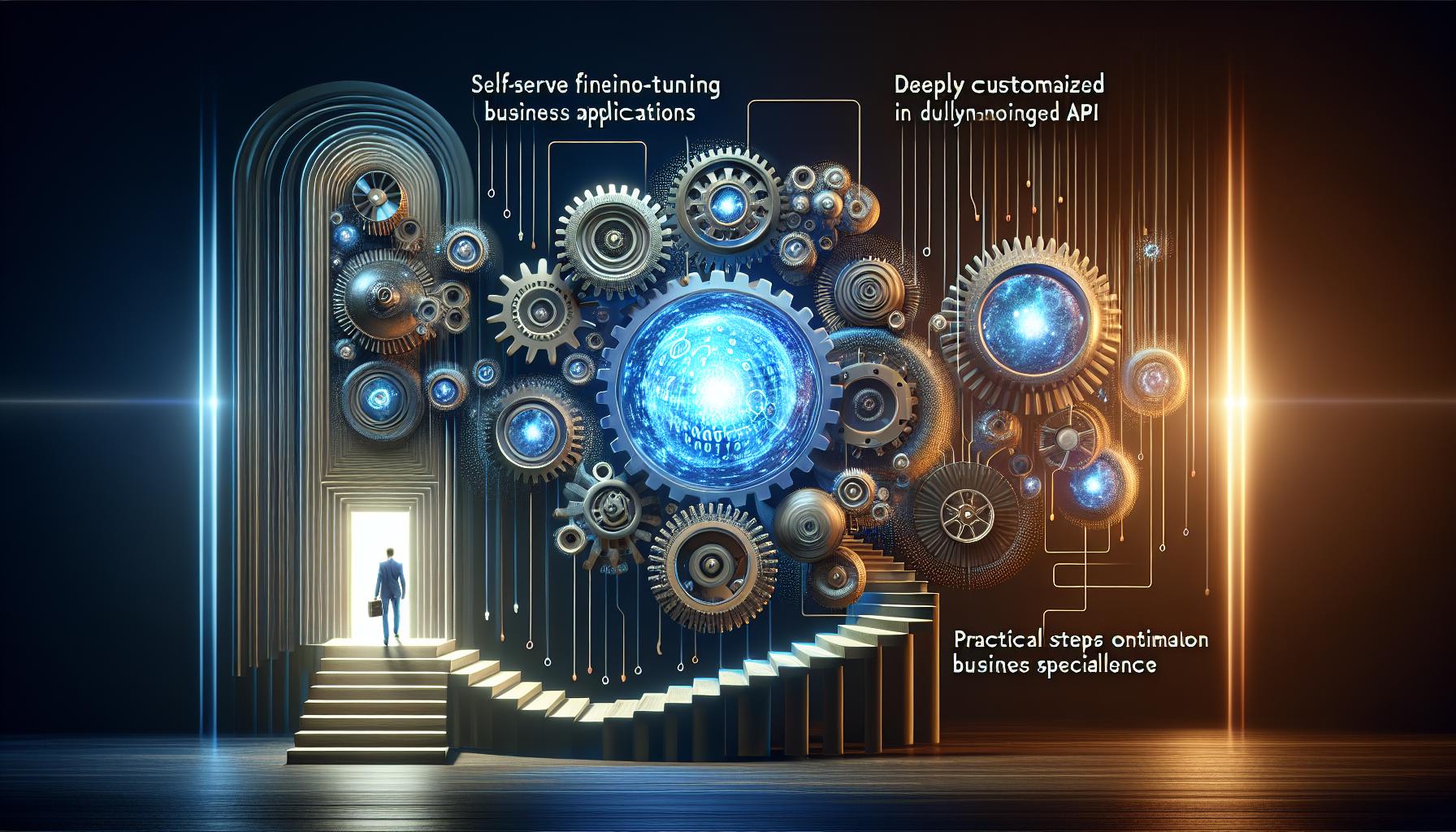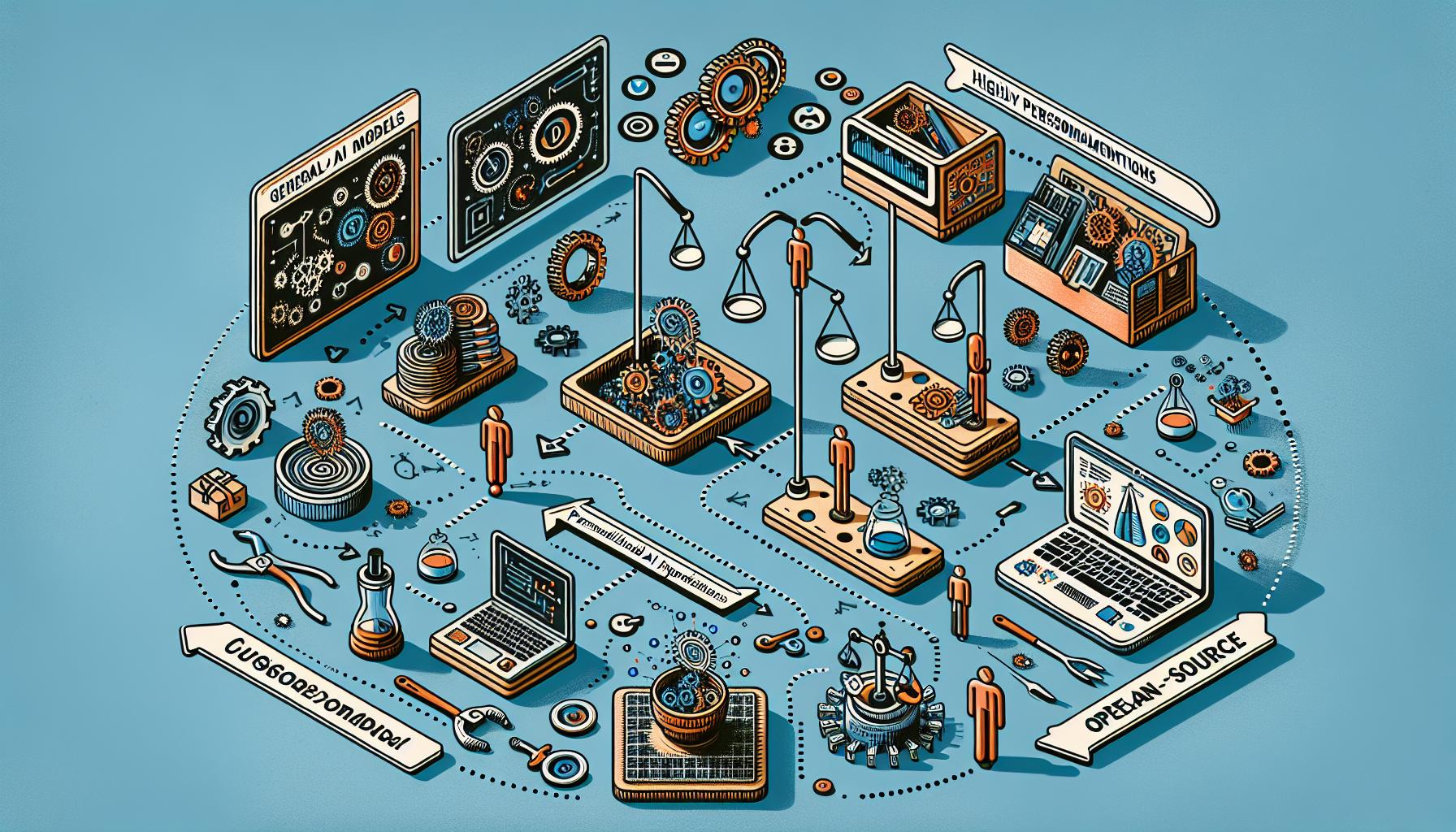Tailored AI: The Future of Customized Models in Business Applications

Introduction
The advent of Artificial Intelligence (AI) has revolutionized many business sectors by automating operations, enhancing decision-making, and offering new ways to engage with customers. But as businesses strive for more targeted solutions, the trend is shifting towards customized A.I. models. These personalized technologies provide precision and efficiency, allowing enterprises to thrive in today's competitive market.
The Rise of Custom A.I. Models
Custom A.I. models represent a significant shift in the way companies implement A.I. technologies. Unlike generic models, which offer broad solutions, custom A.I. models are meticulously tailored to address specific aspects of a business function or industry. This level of customization enhances functionality and efficiency, paving the way for innovative business strategies and operations.
OpenAI's Approach: Self-Serve Fine-Tuning API
OpenAI has been at the forefront of this transformation, pioneering approaches like the self-serve fine-tuning API. This tool allows organizations to refine pre-trained A.I. models using their unique datasets. It empowers companies to enhance these models' comprehension of their specific terminology, workflows, and customer interactions without needing extensive A.I. expertise.
Advantages of Deep Customization Through Custom Model Programs
Alongside the fine-tuning API, OpenAI offers Custom Model programs. These initiatives are designed to build deeply personalized A.I. models that incorporate domain-specific knowledge. This increased level of adaptation ensures businesses can effectively integrate A.I. solutions that are not only efficient but also aligned with their unique objectives and challenges.
Scoping Use Cases for Tailored AI
To implement customized A.I. effectively, companies must carefully scope potential use cases. Identifying the areas where A.I. can add the most value involves understanding the problems that need solving and how A.I. can specifically address these issues. Examples include optimizing supply chains, generating personalized marketing content, and automating customer service responses.
Designing Effective Evaluation Systems
Developing tailored A.I. models also entails setting up robust evaluation systems. These systems help measure the model's performance and its impact on business outcomes. Effective evaluation should not only assess the technical accuracy of the A.I. but also how well it meets business objectives and improves operational efficiency.
Iterative Model Improvement
Finally, the success of customized A.I. models relies heavily on continuous iteration and improvement. Gathering and utilizing feedback from model deployments informs further refinements, ensuring the A.I. remains relevant and valuable as business needs evolve.
Conclusion
Customized A.I. models are set to redefine the landscape of business technology. By offering solutions fine-tuned to specific business needs, these models deliver more precise results and greater operational efficiency. As A.I. technology continues to evolve, the ability to tailor solutions to exact business scenarios will likely be a major determinant of competitive advantage.


